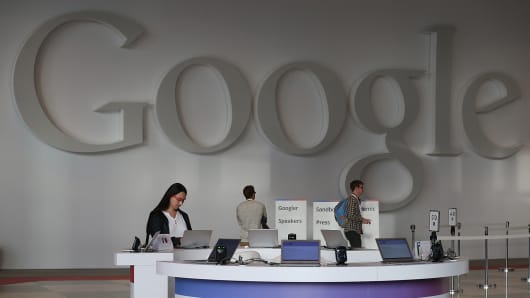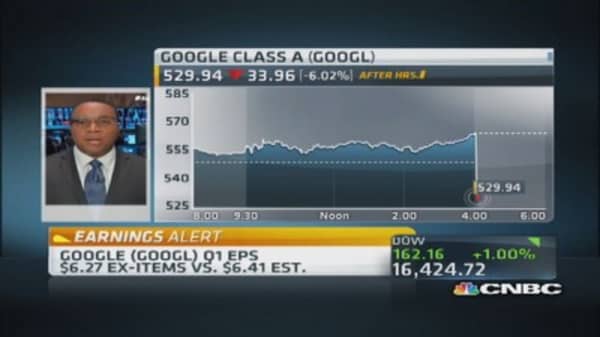
Getty Images
An attendee uses a computer to sign in for the Google I/O developers conference on May 15, 2013 in San Francisco, California.
Growth companies like Google seek to increase profitability and market share in the long term through innovation. A Silicon Valley executive recently told me that he thinks technology companies like Google must do all they can to aggressively innovate including acquiring other companies that will help in that goal. He cited the recently acquired Nest (a smart device in the energy space) as an indication of a grander scheme to have influence across a wide variety of industries. "Google is looking to be everywhere consumers are," he said.
It strikes me as wise that Google is using its currency to invest in areas that might potentially lead to an expansion of their influence and market penetration.
Read MoreApple, Google vie to offer exclusive game apps
Google's investment in Android has been brilliant and positioned them wisely in the mobile space. When the investment was made years ago, many questioned its wisdom. Now it's obvious to everyone that it was a visionary move that is paying benefits today.
Their investment in Motorola seems less wise, though they are recouping much of their investment by selling off pieces of the company (perhaps the legal team believes that the patents purchased will justify the price paid).




